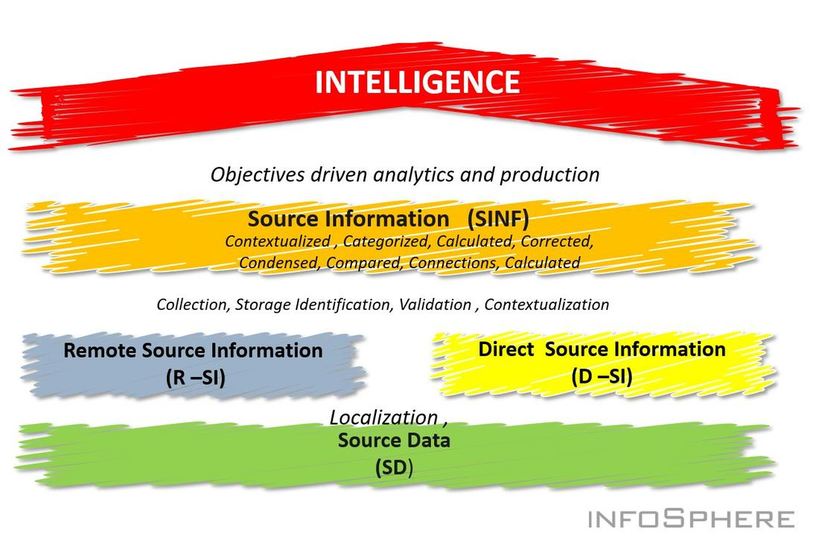 It is a fact that many government agencies both in the U.S. and around the world restrict their employees from visiting social networking sites (SNS) through the use of a firewall filter. This is also true for many major corporations. While some employees honor their organization's policy, many are turning to free proxy services in order to get their daily social networking fix on Twitter, Facebook,YouTube, etc. It is a widely accepted belief from OSINT (Open Source Intelligence) practitioners that these kind of restrictions ultimate effect, will be to further isolate the intelligence agencies from the "real" or unclassified world. In our daily operations, we use professional and social network sites to identify and reach out to individuals who may ultimately offer, and be willing to share their expertise, working knowledge and potential network in a collaborative manner to facilitate, promote and share other resources for potential opportunities or joint ventures. Doing it “old school “ would require massive investments in time, money and OpSec (Operational Security) which may ultimately yield very little usable information and/or contacts. Yes, we do understand the problem and risk associated with intelligence officers that use secret compartmentalized and classified information which may prove to trigger things on the internet; however, it is our belief that these errors and mistakes are caused by lack of training and education in the new cyber operating environment and do not represent a new phenomenon. Examples of this date all the way back to the early 90's when seasoned intelligence officers took information from classified material and performed searches on the early day search engines like AltaVista, commercial databases like Dialog and the now defunct Reuters Business Briefing (predecessor to Factiva) We also saw examples of how news from wire services were wiped clean from source and time stamps and then marked as classified; a practice which is still common today in many intelligence services. THE FIX?BETTER AND SMARTER TRAINING IN REAL OSINT, not the cut and paste and Googlification that we see in so many places. OSINT is NOT how to search the Internet or creating search strings in digital oceans. That is just a small piece of the trade craft. Government agencies could learn a lot from the commercial intelligence activities, since they live an breath publicly and legally obtainable information that is coined "OSINT" by the intelligence agencies. And we are all humans 3.0 with the same drive and desire to stay connected and be up to speed with our friends, family and colleagues. This human drive, coupled with today's social media networking sites (SNS) provides for a better quality of life and will exponentially promote our evolution as active participants in today's global society. The end result of this employer restriction and control is and will always be human adaptation to overcome this control. People are now turning to free proxy services to reach their Facebook, LinkedIn and Twitter feeds. Employees are routinely using their private smartphones to communicate via social networking inside the workplace to avoid detection and recourse from their employers and these social media networking sites keep log files. So what is the answer? The answer lies in education, training and employer implemented policy which adapts to new social media phenomena versus waging an expensive and futile effort to control this phenomena. We know, from years of experience, that smart clients and companies use external consultancies and advisers as proxys. This is a better and smarter way, but it also poses a question: Should Government agencies that deal with HUMINT and SIGINT deal with OSINT? Would it not be better to outsource this to companies that live and breathe in this kind of environment and may have 50+ commercial clients that actually act as a super proxy, making it impossible for anyone to figure out which client is asking for what and ultimately promotes complete anonymity and operational security? Big consultancies such as McKinsey & Company and Strategy+, in addition to smaller outfits such as ourselves, Infosphere AB, enable and promote environments where you always stay in touch with people and experts around the globe in a dynamic collaborative setup that encourages and feeds an openness. This concept of an environment and culture of openness is not well nurtured in the government intelligence agencies, nor in big international companies internal intelligence operations. True implementation of this concept will require a shift in the "old school" thought process and belief that more classification and over classification is good for the advancement and safety of society as a whole. RETHINK NOW!
Just more frustrated.
0 Comments
|
AuthorContribution from Infosphere staff Archives
February 2024
Categories |
HoursAll days: 7am - 7pm GMT+1
|
Telephone+46 8 611 22 33
|
|
If you want to communicate the old fashioned way - Infosphere AB, Gustaf Adolfs väg 20, 76140 Norrtälje, Sweden Our VAT no is SE556581781301
Our Privacy Policy
Our Privacy Policy

 RSS Feed
RSS Feed